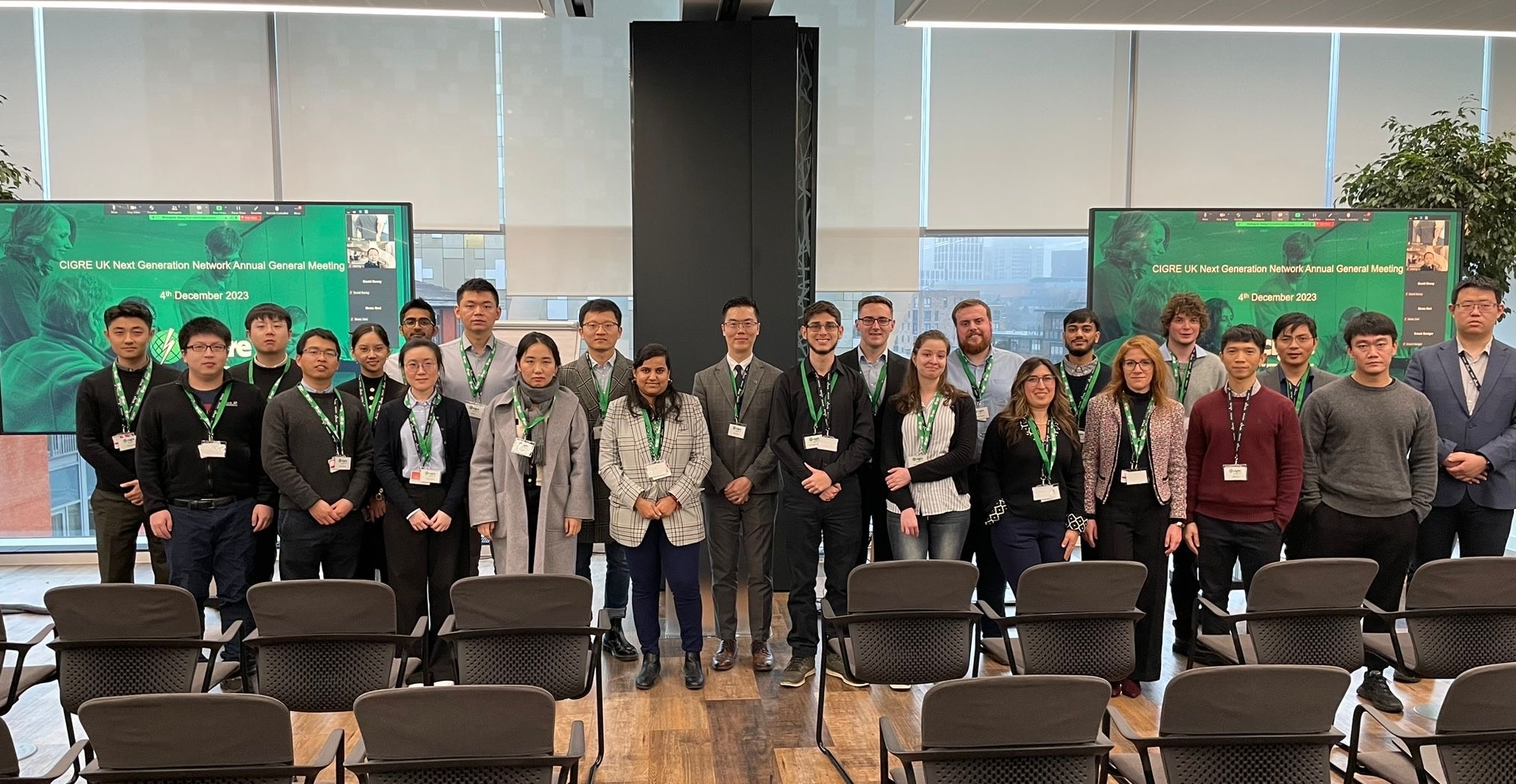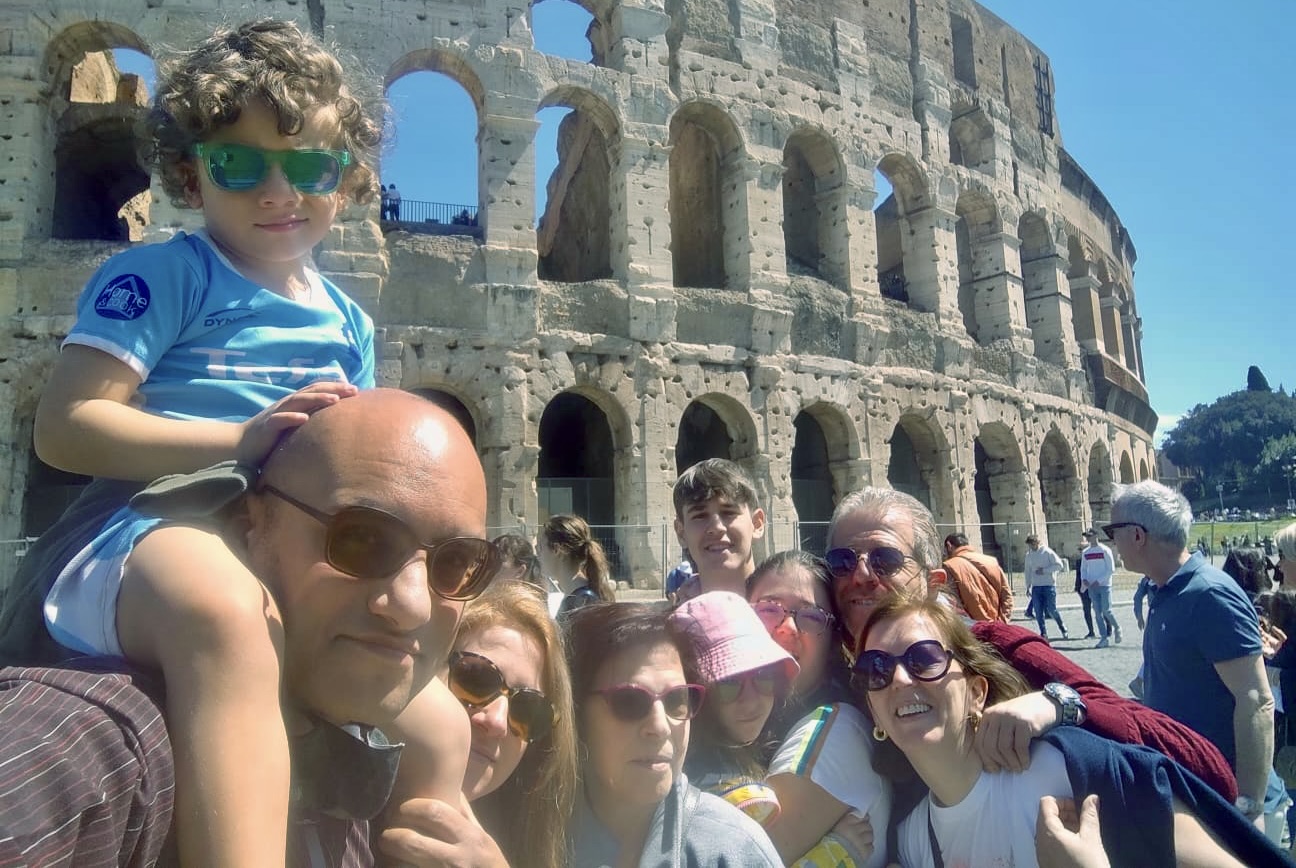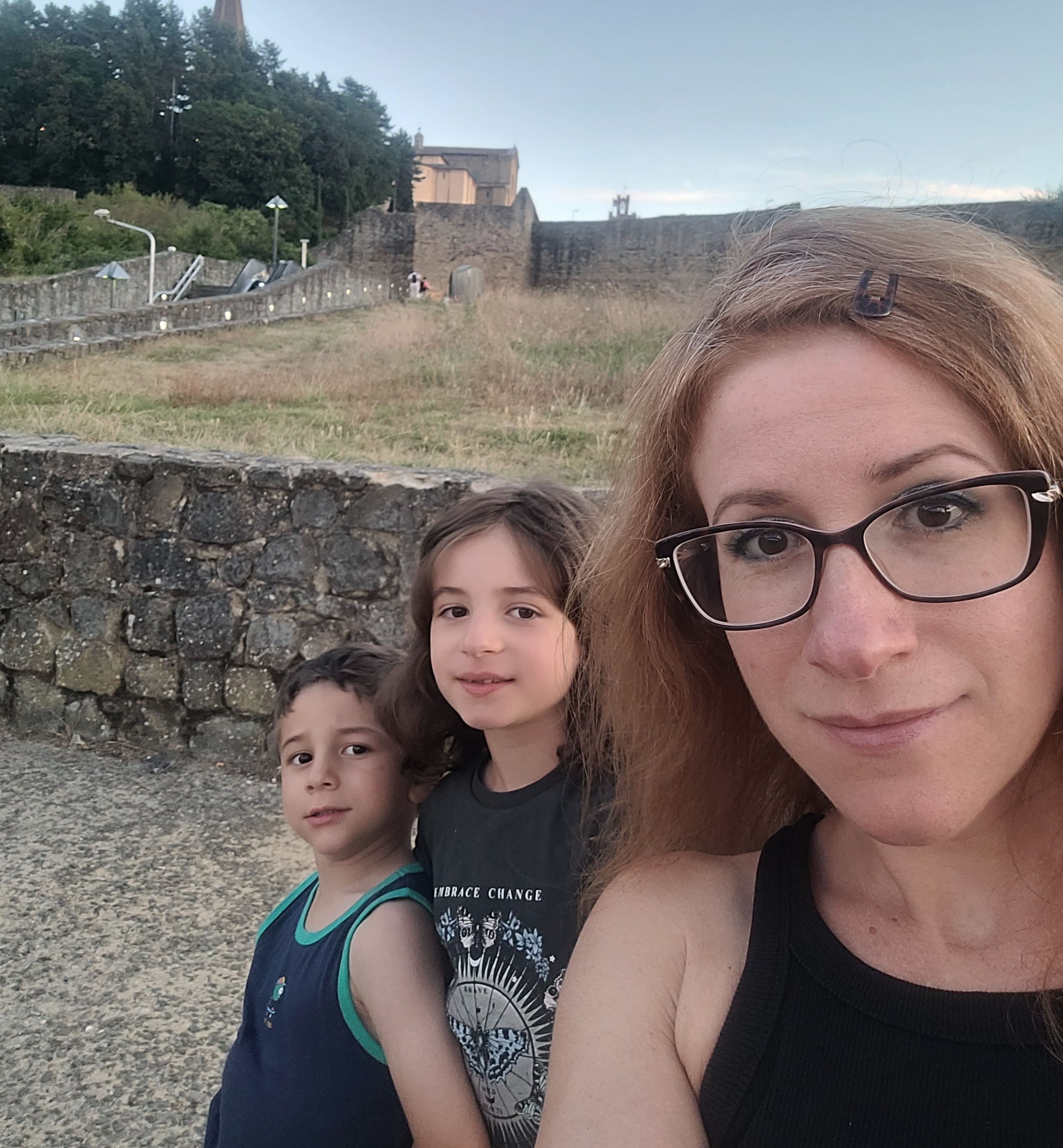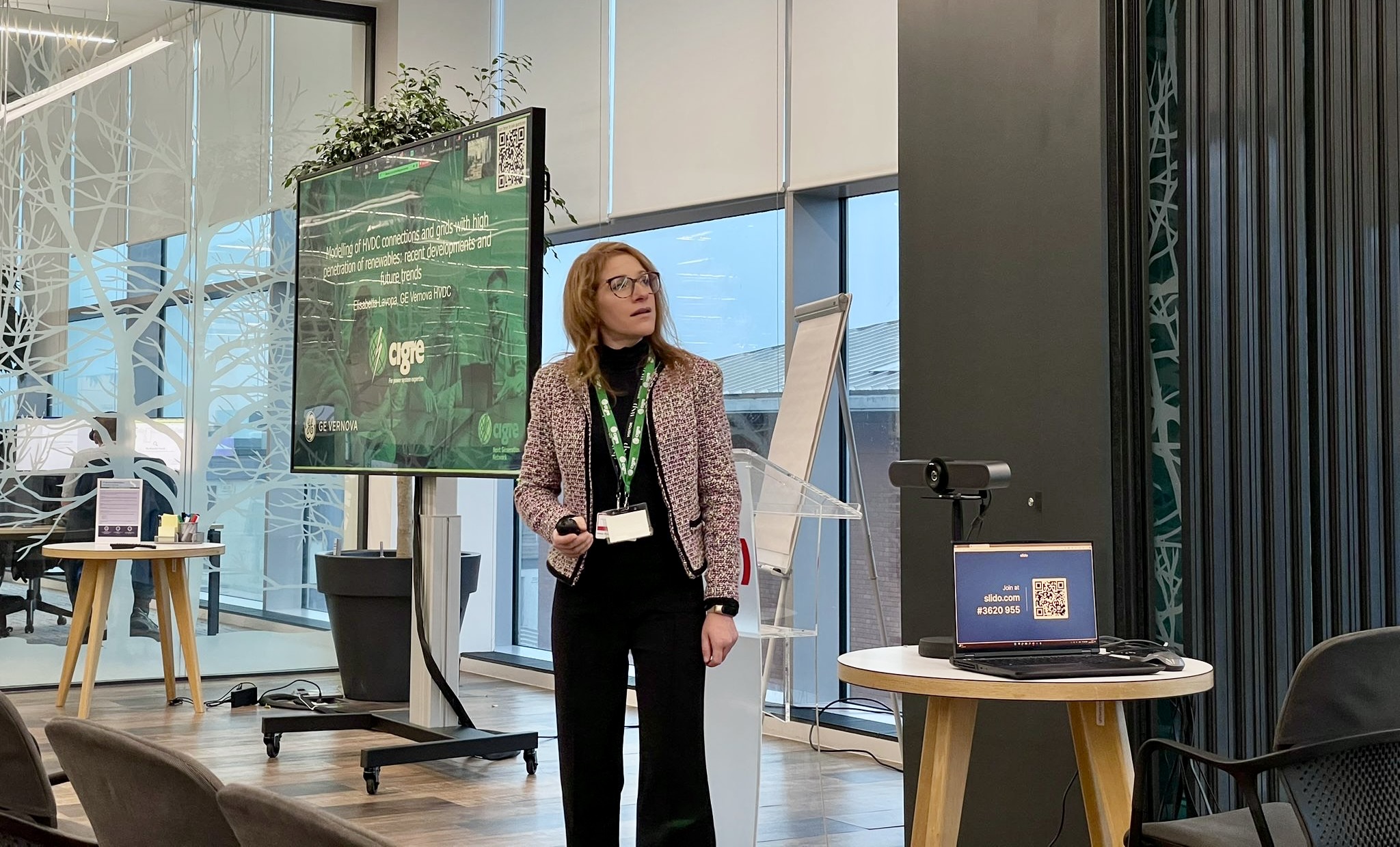This Saturday marks International Women’s Day, a chance to celebrate the social, economic, cultural, and political achievements of women all over the world. This year we asked electrical engineer Elisabetta Lavopa to talk about her life and work. Lavopa hails from Italy and now works as HVDC System Studies team lead in GE Vernova’s Grid Solutions business in Stafford, England.
What is your role today, and how does it fit with your career expectations?
I have led the System Studies team of our HVDC Product Delivery Group in Stafford, U.K., for about three years. It’s been an exciting and challenging experience that has allowed me to learn and grow very quickly in the area of System Studies for HVDC interconnections and beyond. It combines continuous technical growth with responsibilities in people leadership, process strategy, and functional management. I’ve had an incredible number of opportunities to be in contact with other parts of the business, both internally to HVDC and externally to other parts of Grid Systems Integration business line, as well as external customers, suppliers, and academia. What makes my role even more exciting is the organization we work in, which is seeing rapid and successful growth in the ever-evolving landscape of the energy transition.
What do you like most in your job?
I get the opportunity to explore a wide variety of technical challenges. More than any other roles I held in the past, it’s forced me to grow as an individual, get to know my limits, and assert myself while developing a strong sense of empathy and insight into the multifaceted reality of our large engineering organization.
What are you most proud of?
I’ve grown to be relied upon by the business in the subject matter relevant to my role. I’m proud of how my team has expanded — we started from a team of three and reached a peak of 30 — as well as how they have grown individually, what they have achieved in our customer projects, and in the knowledge sharing they have been actively involved in. I’m also proud of the long-lasting relationships I’ve developed within the business.

You are a newly appointed Fellow of Grid Solutions’ Technical Expert Program (TEP) — one of two female engineers at that level of the program. What do you do as an active member, and what has the program brought you?
As an active member of the TEP, I endeavor to stay in tune with the latest advancements in our technology via scientific publications, seminars, conferences, and CIGRE (the International Council on Large Electric Systems) working groups. The fellowship appointment is very recent, so I can’t say yet what it’s going to mean for me. Certainly, I’m very excited about it, as I expect it will create new opportunities to connect with the technical community and have access to a wider breadth of knowledge from experts in the business and in the wider industry, inspiring me to do better each day and boosting my passion for this job. I also hope to inspire other women to follow the same path!
What is your educational background?
I grew up in Bari, in southern Italy, and attended a high school that specialized in scientific subjects. I then attended the Polytechnic University of Bari, where I completed a five-year degree in electrical engineering.
How did you decide to become an engineer and to work in the energy industry?
In my next-to-last year of high school, my class was assigned a maths teacher who was not very motivating. I knew I was missing out on a crucial part of my education. The following year — my A-level year — I got myself moved to a different class, which was renowned for having the most competent and toughest maths teacher in the school. She allowed me to catch up with the syllabus of the previous year and complete the syllabus for the final year and taught us additional topics. That stimulated my curiosity toward a STEM career and gave me the confidence to enroll in an engineering course in college.
Compared with other scientific subjects, engineering felt closer to reality, where I could have a more direct impact on society than, for example, in math or physics. I did not envision myself in a research lab in the long term, although I did end up spending a good amount of time in labs eventually.
How does your work impact the energy transition and the decarbonization of the planet?
I am fortunate to work in a sector very much at the forefront of the energy transition. You can’t get much closer than this. HVDC interconnections are being designed and commissioned worldwide specifically to support the grid of the future, with a higher density of renewable generation and all the transformation that comes with it. It is a pivotal technology to support an infrastructure so vital to the functioning of society.
I volunteered at an event at my kids’ school some time ago, where I talked about electrical engineering, and the pupils were utterly fascinated by the profound impact this profession can have on the environment.
Who or what in your life has inspired you?
I’m inspired by strong women in history, those who have broken the mold of the roles society expected them to fit into. History is full of examples like this, not only in science. I like the idea of not conforming to a restrictive set of expectations.
Both my paternal and maternal grandmothers were inspiring figures. They were professional women in an era when this was not expected of them. One ran her own business pretty much single-handedly, and the other was a professional seamstress for big fashion houses, making bridal gowns. She moved around the country for her work, by herself, in the 1930s and ’40s, which I find quite radical for a woman at that time.

What does it mean to you to be a woman in this industry?
It means to disrupt the misconceptions about women and their capabilities in specific professional areas. Beyond an organizational level, an individual transformation is happening. For women, it’s a big challenge to disrupt those internal patterns of thought that make us doubt ourselves and our capabilities. These patterns manifest quite strongly in the STEM environment, starting from a young age. I am very grateful to work for an organization that embraces diversity, has believed in me, and has allowed me to blossom.
Motherhood also has played a big part in shaping who I am today professionally. I have learned to multitask more, to let go of perfectionism, and to be kinder and more sympathetic to myself and those around me.
Throughout my career, I have been very fortunate to encounter amazing women engineers who have inspired me to be confident in my competence while embracing my feminine side. I have found women engineers to be very competent and effective. They tend to be thorough and accurate. They also have an innate sense of empathy and thoughtfulness that brings balance to the workplace and enhances the overall experience of teamwork. I would love to hire more of them, but I’ll need to find them first!
What would you say to young girls to encourage them to follow your steps and embrace an engineering career?
Engineering allows you to apply mathematical concepts to practical solutions. It opens your mind to think critically and empowers you to make a difference in the world around you. It stimulates curiosity: Everything you do as an engineer forces you to discover and learn something new each day. There is also a strong (and often underestimated) creative aspect to it. From design to troubleshooting, you have the opportunity to create something new or open up a path for someone else to do it.

By being an engineer, you are going to be part of a rich international community. It truly is like being part of a big family. It gives you a sense of belonging that will accompany you throughout your life. You will be involved in plenty of events all over the world — networking, conferences, seminars — where your horizons will continuously expand, and you will meet other amazing, knowledgeable engineers like you.
